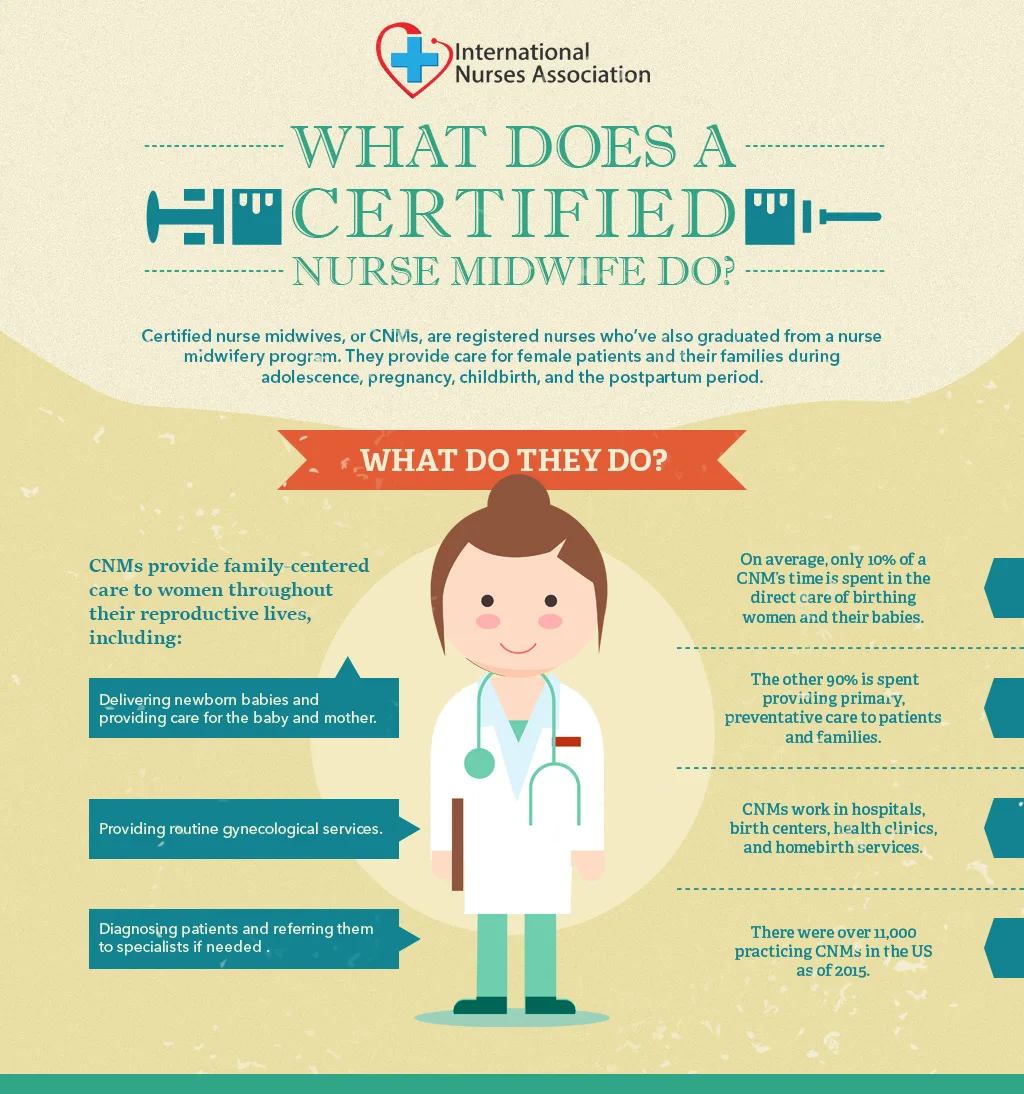Midwifery Care: Your Journey to Motherhood with Magic 101
As a woman, I know that the journey to motherhood can be both exciting and overwhelming. There’s so much to think about, from prenatal care to choosing a birthing plan. That’s why I want to introduce you to the magic of midwifery care.
Midwives are experts in guiding women through your journey to motherhood, pregnancy, birth, and postpartum care. They provide personalized attention and empower women with the knowledge and support they need during this transformative time in their lives.
In this article, we’ll explore the benefits of midwifery care, the specialized services offered by midwives, how they differ from OB/GYNs, and how to find the right midwife for your unique needs.
So if you’re looking for a compassionate guide on your journey to motherhood, read on!
The Benefits of Midwifery Care
You’ll love the benefits of having a midwifery care for you during your pregnancy and birth. Midwives are experts in natural childbirth and prioritize an individualized approach to each mother’s unique needs. They offer personalized care that is focused on empowering mothers to make informed decisions about their health, their baby’s health, and their birth experience.
One of the most significant benefits of having a midwife is the option for a home birth or access to natural labor options. While there are many ways to give birth, midwives specialize in supporting mothers who choose these options. They provide guidance and support through every stage of labor, ensuring that both mother and baby receive the best possible care.
Additionally, midwives offer emotional support throughout pregnancy, providing reassurance and helping mothers navigate any concerns they may have. As such, having a midwife by your side can help you feel more confident and empowered as you journey towards motherhood.
Midwifery offers specialized services that cater to your specific needs during this time. With a range of expertise including prenatal education, breastfeeding support, postpartum recovery guidance – all provided by experienced professionals- it’s easy to see why choosing a midwife can be one of the best decisions you make during your pregnancy journey!
Specialized Services Offered by Midwives
The services provided by midwives are unique and personalized. Their expertise goes beyond just delivering babies in a hospital setting. Midwives offer specialized services such as home births, water births, childbirth with natural pain management and even preconception counseling.
These professionals recognize the importance of creating a comfortable and safe environment for expectant mothers to welcome their little ones into the world. Home birth is becoming increasingly popular among women who want to have more control over their birthing experience. Midwives provide thorough prenatal care, ensuring that expectant mothers are healthy enough to deliver at home. They also come equipped with all the necessary medical equipment, including oxygen tanks and resuscitation tools, in case of an emergency situation.

Water birth is another service offered by midwives where women can labor and deliver in a warm pool of water which provides natural pain relief during labor. As much as midwifery offers unique services for expectant mothers, there’s still confusion about how they differ from obstetricians/gynecologists (ob/gyns). While both professions specialize in pregnancy and childbirth, midwives focus on low-risk pregnancies while ob/gyns often manage high-risk pregnancies that require medical interventions or surgical procedures.
Understanding these differences can help you make informed decisions about your prenatal care options.
The Difference Between Midwives and OB/GYNs
Are you curious about the differences between midwives and OB/GYNs and how they can impact your pregnancy journey?
Midwives are healthcare professionals who specialize in providing prenatal, childbirth, and postpartum care to women. They focus on natural birth methods and work with their patients to create a personalized care plan that caters to their individual needs.
On the other hand, OB/GYNs are medical doctors who specialize in pregnancy and childbirth but also perform surgeries related to reproductive health.

One of the key differences between midwives and OB/GYNs is their approach to birthing practices. Midwives typically prioritize natural birthing methods like water births or home births that allow for minimal intervention unless there is an emergency. In contrast, OB/GYNs may rely more heavily on medical interventions like epidurals or C-sections when necessary.
When choosing between midwifery and obstetric care, it’s important to consider your personal preferences as well as any potential risks or complications associated with your pregnancy. With this in mind, let’s explore how you can find the right midwife for you.
How to Find the Right Midwife for You
When it comes to finding the right midwife for your pregnancy journey, there are a few key factors to consider. First and foremost, research and recommendations from trusted sources can help narrow down your options.
Additionally, evaluating a midwife’s credentials and experience is crucial in ensuring you receive safe and high-quality care. Finally, compatibility and communication are important aspects to assess to ensure you feel comfortable and heard throughout the entire process.
As someone who’s gone through this experience myself, I understand how overwhelming it can be, but with these tips in mind, you’ll be able to find the perfect midwife for you.
Research and Recommendations
As you delve into the research and recommendations, it’s important to remember that evidence-based practices and a holistic approach should be at the forefront of your criteria. Look for midwives who prioritize your physical, emotional, and spiritual well-being throughout the journey of pregnancy, birth, and postpartum.
Seek out recommendations from friends or family members who’ve had positive experiences with midwives, or ask for referrals from healthcare providers who share similar values. You can also check online reviews or websites like Midwife Alliance of North America (MANA) for a directory of certified midwives in your area.

Trust your intuition and schedule consultations with potential midwives to gauge their personality, communication style, and level of experience. By doing thorough research and seeking recommendations from trusted sources, you’ll undoubtedly find a midwife who resonates with you on a personal level.
Keep in mind that finding the right fit is essential for building trust and confidence in your birth team as we move forward into discussing credentials and experience.
Credentials and Experience
Now it’s time to take a closer look at the credentials and experience of potential midwives, so you can feel confident in choosing someone who aligns with your values and priorities for your pregnancy and birth.
When considering a midwife, education is an important factor to consider. Midwives should have completed a rigorous educational program that includes both academic coursework and hands-on clinical experience. Look for midwives who have received certification from recognized organizations such as the American College of Nurse-Midwives or the North American Registry of Midwives.

In addition to education and certification, experience is also crucial when selecting a midwife. Ask about their years of practice, number of births attended, and whether they have specialized training in certain areas such as high-risk pregnancies or home births.
It’s also important to discuss their philosophy on childbirth and if it aligns with your own beliefs. By taking these factors into consideration, you can choose a midwife who has the necessary qualifications and experience to provide safe care throughout your pregnancy journey while also feeling comfortable with their approach to childbirth.
With this foundation established, you can then move onto evaluating compatibility and communication with potential midwives.
Compatibility and Communication
Finding a midwife who you feel comfortable with and can communicate openly with is essential for a positive pregnancy and birth experience. During your initial consultation, take note of how the midwife listens to you, answers your questions, and makes suggestions.
Do they respect your partner’s involvement in the process? Are they open to discussing your birth plan and any concerns you may have? These are important factors that will contribute to a successful partnership between you and your midwife. Communication is key when it comes to working with a midwife.

You want someone who will support and guide you through every step of the journey while also respecting your wishes. A good midwife should make you feel empowered, confident, and heard. Once you find that perfect match, embrace their expertise and trust in their guidance as they help lead you towards motherhood with confidence and grace.
Embracing the Midwifery Magic
You’re ready to fully embrace the power of personalized care and trust in the intuitive wisdom of those who have dedicated their lives to supporting women through one of life’s most transformational experiences. Midwifery care is a holistic approach that emphasizes natural methods and empowers women to take charge of their own health, wellness, and birthing process.
Here are four reasons why you should consider embracing the midwifery magic:
1. Personalized care: Midwives take the time to get to know you as an individual, not just a patient. They listen attentively to your concerns, answer your questions honestly, and offer support every step of the way.
2. Home birth: Many midwives specialize in home births, which allow you to create a comfortable, familiar environment where you feel safe and secure during labor and delivery.
3. Natural pain relief: Midwives often use non-invasive techniques such as massage, aromatherapy, hydrotherapy, and breathing exercises to manage pain during labor instead of medication.
4. Continuity of care: With midwifery care, you’ll work with the same provider throughout your pregnancy, labor/delivery, and postpartum period for consistent guidance and support from someone who knows you well.

By choosing a midwife for your maternity care needs, you’re making a conscious choice for yourself, family, and community that values natural processes while providing compassionate, personalized healthcare services that support healthy living across all aspects of life. This is what embracing the midwifery magic means – enjoying motherhood without fear or anxiety, but with confidence, knowledge, and skills acquired through professional guidance by experts who truly believe in empowering mothers-to-be towards optimal physical, mental, and emotional wellbeing before, during, and after the childbearing experience.
Frequently Asked Questions
How much does midwifery care typically cost compared to traditional obstetric care?
Comparing the cost of midwifery care to traditional obstetric care can vary depending on insurance coverage and location. Generally, midwifery care is less expensive than obstetric care because it involves fewer medical interventions. Additionally, midwives often have lower overhead costs compared to hospitals or physician practices.
Insurance coverage for midwifery services also varies, but many plans cover at least a portion of the cost. It’s important to check with your insurance provider to understand what services are covered and what out-of-pocket expenses you may incur.
Overall, choosing midwifery care can be a more affordable option for women seeking personalized and holistic support during their pregnancy and childbirth journey.
Are there any potential risks or complications associated with using a midwife for childbirth?
When it comes to choosing a healthcare provider for childbirth, many women wonder about the potential risks and complications associated with using a midwife. While there are certainly benefits to midwifery care, such as personalized attention and a focus on natural childbirth, it’s important to weigh these against any potential risks.
Some possible complications that could arise during childbirth include bleeding, infection, or difficulty delivering the baby. However, midwives are trained professionals who have experience handling these types of situations.
Additionally, studies have shown that women who receive midwifery care tend to have better outcomes overall compared to those who use traditional obstetric care.
It’s important to do your research and talk with your healthcare provider about what option is best for you and your baby.
Can midwives provide pain management options during labor and delivery?
As someone who’s experienced childbirth with the help of a midwife, I can confidently say that midwives are equipped to provide pain management techniques during labor and delivery.
From breathing exercises to massage therapy, midwifery care offer a range of options to help manage pain and discomfort. They also provide emotional support throughout the process, which can make a significant difference in how you experience childbirth.
With their expertise and compassionate midwifery care, they can guide you through this transformative journey with confidence and ease.
How involved can a partner or family member be during the midwifery care process?
Partner involvement and family support are crucial elements in the midwifery care process. As someone who’s experienced childbirth with a midwifery care, I can attest to the magic that happens when everyone is involved.
My partner was able to be present and engaged throughout the entire journey, from prenatal visits to labor and delivery. The midwife encouraged his participation in decision-making, provided education on various aspects of pregnancy and childbirth, and even gave him tips on how he could support me during labor.
Additionally, my family members were able to attend appointments with me and were welcomed into the birth space for support. It truly takes a village to bring new life into this world, and having partners and family members involved in midwifery care only strengthens that bond of love and support.
Are there any restrictions on the types of pregnancies or birth situations that midwives can handle?
When it comes to midwifery care, there are certain restrictions on the types of pregnancies or birth situations that midwives can handle.
High-risk pregnancies and special birth situations require more specialized medical attention, and as such may not be within the scope of practice for midwives. However, this doesn’t mean that midwifery care can’t provide valuable support and guidance throughout a pregnancy journey.
It’s important for expectant mothers to discuss their individual needs and concerns with their chosen midwife to determine what level of care is appropriate for their situation.
Ultimately, the goal of midwifery care is to empower women and guide them through a safe and positive childbirth experience.
Conclusion
In conclusion, my experience with midwifery care has been nothing short of magical. The personalized attention and specialized services offered by my midwife made all the difference in my journey to motherhood.
Not only did I feel supported every step of the way, but studies show that women who receive midwifery care have lower rates of interventions during labor and delivery, leading to a more positive birth experience overall.
One statistic that truly evokes emotion is that women who receive midwifery care are 19% less likely to have a cesarean delivery compared to those receiving standard obstetric care. This not only reduces the risk of complications during surgery but also allows for a faster recovery time and bonding with your newborn.
It’s clear that midwifery care play an important role in promoting safe, healthy births for both mothers and babies.
If you’re considering midwifery care for your pregnancy journey, I highly recommend it. Embrace the magic and let the midwifery care experts guide you every step of the way.







